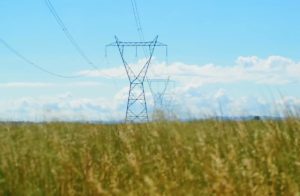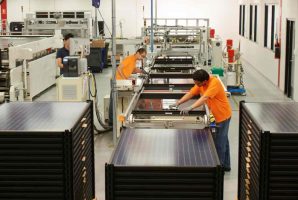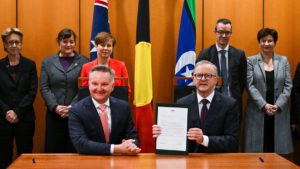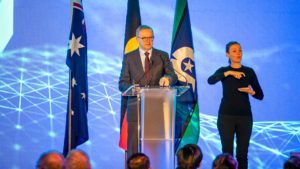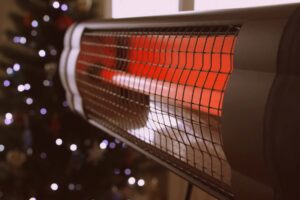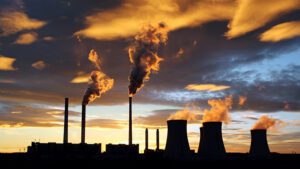Prime minister Anthony Albanese says he has held talks with tech billionaire Mike Cannon-Brookes and other connected with the $30 billion Sun Cable project about manufacturing opportunities in Australia.
Cannon-Brookes and iron ore billionaire Andrew Forrest are the main partners behind what would be the world’s biggest solar and battery storage project, supplying power to Singapore via a sub-sea cable, as well as to Darwin to support new green manufacturing industries.
The scale of the project – 20GW of solar and up to 42GWh of battery storage, plus a massive overhead transmission line of 800kms and 4,200km of sub sea cable – is so big that much of its components will have to be built in Australia, particularly in the light of global supply constraints that have hindered many projects.
See: Sun Cable unveils staggering scale of world’s biggest solar and battery project
The chances that this will be done mostly in the cabling and the solar modules. Forrest has already flagged a cabling manufacturing facility as part of his Gladstone plans that will initially focus on hydrogen electrolysers, but manufacturing is also likely to take place in the Darwin area.
“I have had discussions with Mike Cannon-Brookes and others connected with Sun Cable about how we maximise Australian input there,” Albanese told reporters in Darwin, after leading a delegation to Indonesia that included representatives from Sun Cable, and other industry leaders.
“So areas like the production of the cable itself, this is a manufacturing boom that we have potentially here in Australia,” Albanese said.
“It’s what, when I spoke about a feature made in Australia during the campaign, it’s exactly that. There isn’t a solar panel in the world that doesn’t have Australian IP involved. Whether it’s ANU or UNSW, we need to maximise Australian input.”
Sun Cable has not revealed its detailed plans for the Sun Cable supply chain, although local solar tech company 5B has been named as a preferred tenderer. Its speciality, however, is in racking and building modular packages rather than manufacturing the solar panels themselves.
Albanese did not reveal the timing or other content of his talks with Cannon-Brookes, who has also played a key role in stopping Australia’s biggest polluter, AGL Energy, from going ahead with its plans to split the company in two.
Cannon-Brookes bought an 11.3 per cent stake in AGL – enough in the end to block the proposal – and argued that AGL and its shareholders and employees were best served by staying as a single company and accelerating its exit from coal and transition to green energy.
Update: Sun Cable CEO David Griffin, who was part of the Albanese delegation to Indonesia, told RenewEconomy from Jakarta that there was no doubt that a project of this scale would be significantly derisked by local manufacturing.
He said there were no current contracts, but the supply chain would need to be properly identified before the first stage of the project reached financial close, which Sun Cable hopes to do by the end of next year.


